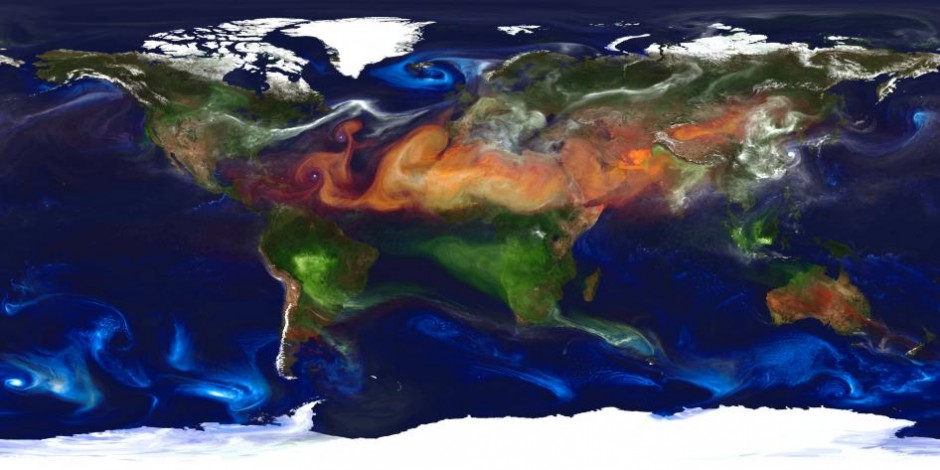For those who follow [pun intended] the world of climate science on Twitter, you’ll very likely have noticed a string of tweets from a meeting at the Royal Society on the “Next steps in climate science“. The programme (PDF here) has included a wide range of topics relating to climate science and has included a number of scientists who heavily contributed to the recent IPCC Working Group One assessment report.
I put together a Storify of the discussion relating to a talk by Dr Oliver Boucher from the Met Office Hadley Centre on the role of aerosols in the session on “How large are uncertainties in forcings and feedbacks and how can they be reduced?” – the discussion can be accessed below or by clicking here.

Image of the global aerosol distribution produced by NASA. The image was produced using high-resolution modelling by William Putman from NASA/Goddard. The colours show the swirls of aerosol particles formed from the numerous sources across the globe. The colours show aerosol particles as dust (gold/brown), sea-spray (blue), biomass burning/wildfires (green) and industrial/urban (white). Trying to untangle all of this is extremely challenging!
The event itself has been an excellent distraction example of scientists communicating with a wide audience and is yet another example of social media adding something extra to scientific meetings. I wasn’t able to attend but I found the discussions on Twitter interesting, engaging and thought provoking. Many thanks to the speakers, tweeters and the Royal Society.
http://storify.com/willtmorgan/how-large-are-uncertainties-in-forcings-and-feedba?
